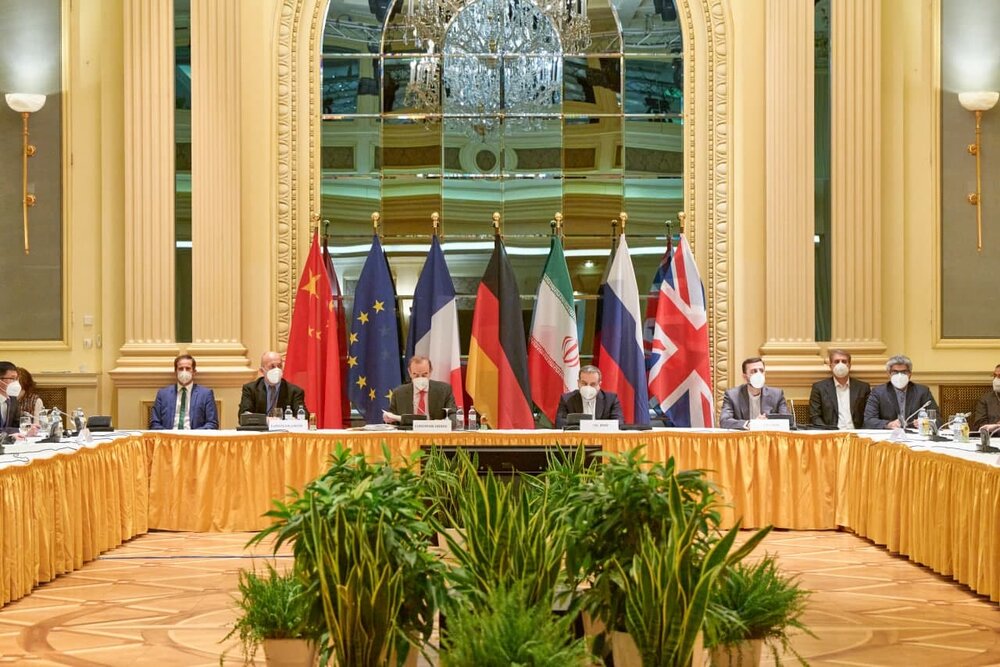Tough talks expected as nuclear negotiators gather in Vienna

TEHRAN – After briefing lawmakers and other officials on the recent nuclear deal talks in Vienna, the Iranian negotiating team led by Deputy Foreign Minister Seyed Abbas Araghchi returned to the Austrian capital with a clear vision on how to proceed with the “very difficult” talks.
During his stay in Tehran, Araghchi attended a session of the Iranian Parliament’s National Security and Foreign Policy Committee to brief lawmakers on the outcome of the latest rounds of the Vienna talks.
Speaking on the sidelines of the Committee session, Araghchi offered a glimpse into the outcome of the talks, saying that, during these talks, U.S. sanctions on Iran were divided into two categories, one imposed on economic entities and activities while the other imposed on Iranian individuals.
“There is a better understanding as to the [lifting of] economic sanctions,” Araghchi noted. But sanctions on individuals, estimated to be more than 1,500 cases, are yet to be resolved, the top negotiator said, adding that they will be negotiated in the next round of talks which is expected to be resumed on Tuesday, April 27.
So far, Iran and the P4+1 (Russia, China, France, and the UK plus Germany) have concluded at least two rounds of talks over reviving a 2015 nuclear deal, officially known as the Joint Comprehensive Plan of Action (JCPOA). The talks are being held within the framework of the JCPOA Joint Commission, with the three European signatories to the JCPOA -France, Germany and the UK (E3)- acting as intermediaries between the Iranian and American diplomats who are present in Vienna in separate hotels.
Diplomats from Iran and the P4+1 as well as the U.S. will resume nuclear talks in Vienna on Tuesday. The Iranian negotiating team left Tehran for Vienna on Monday.
Before heading to Vienna, Araghchi said that Iran cannot say whether it is optimistic or pessimistic about the Vienna talks. “But we are not disappointed and we will do our job. Our positions are very clear and firm. The sanctions must be lifted, verified and then Iran must return to its commitments. We stood up in this regard and the representatives were given full explanations,” he pointed out.
Iranian Foreign Minister Mohammad Javad Zarif echoed the same position during his Monday visit to Iraq.
“Today we had the opportunity to talk about the nuclear talks between Iran and the P4+1 countries. Of course, the Americans are in Vienna, and we have no dialogue with the United States. But we had very good talks on the implementation of the JCPOA, and we hope that the new U.S. administration, with a sensible policy and the fulfillment of its commitments, will be able to return to the JCPOA more quickly and all sides fulfill their commitments. We are ready to return and fulfill our commitments in full as soon as the U.S. commitments are met and verified,” Zarif said.
The Tuesday meeting of the JCPOA Joint Commission is expected to be tough. Araghchi said on Sunday that there are very difficult challenges in the negotiations.
Despite his reiteration that Iran and the P4+1 are now on a path that can reach a successful end, the top Iranian negotiator highlighted the difficulties by saying that “it is too early to say whether we can overcome the challenges and obstacles.”
On the other hand, the U.S. has refrained from taking steps to rectify the mistakes of the Trump administration, which withdrew from the JCPOA in May 2018 and launched the so-called “maximum pressure” campaign against Iran, a policy that Biden officials repudiated as failed.
Following the recent round of talks in Vienna, a senior U.S. State Department official said that Washington will not accept Iran’s demand that the U.S. act first to revive the JCPOA.
“We’re not going to accept a process in which the U.S. acts first and removes all of the sanctions that it is committed to removing before Iran does anything,” the official said.
The U.S. insistence on keeping sanctions in place comes as Iran made it clear that it will accept nothing short of the total lifting of all the sanctions that were imposed, reimposed, or relabeled under Trump. Araghchi said Iran is not in a rush to reach a conclusion in Vienna. At the same time, he underlined that Iran will stop the talks if they turn into a waste of time.
